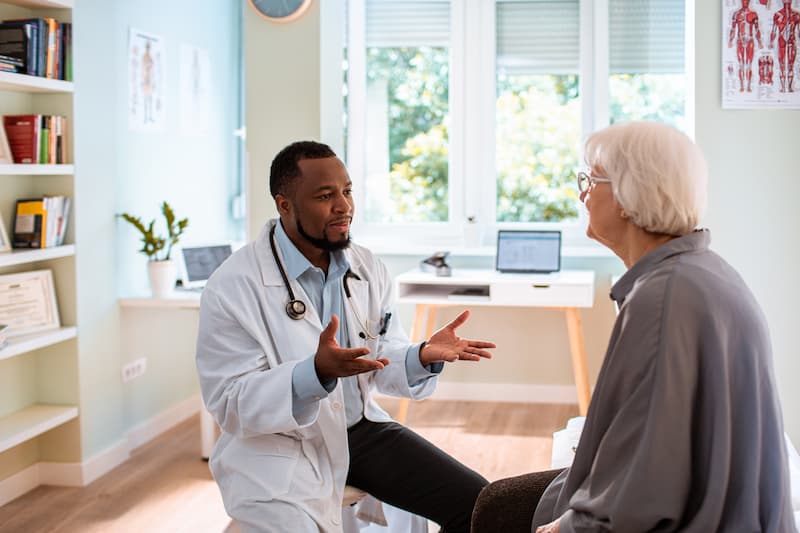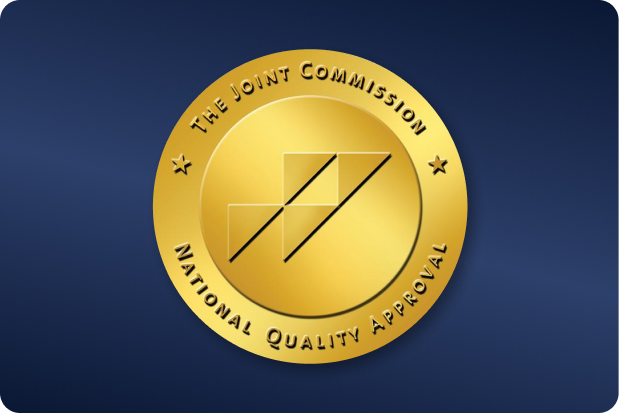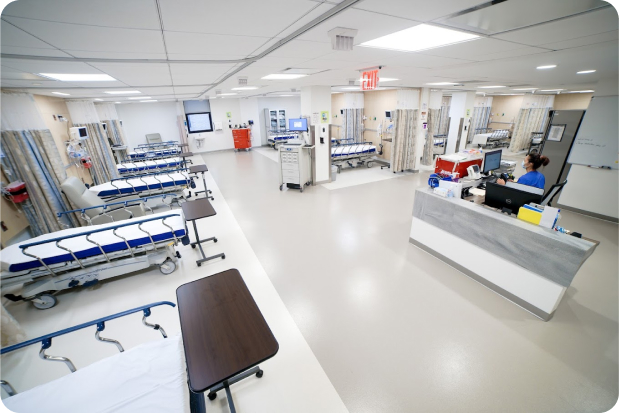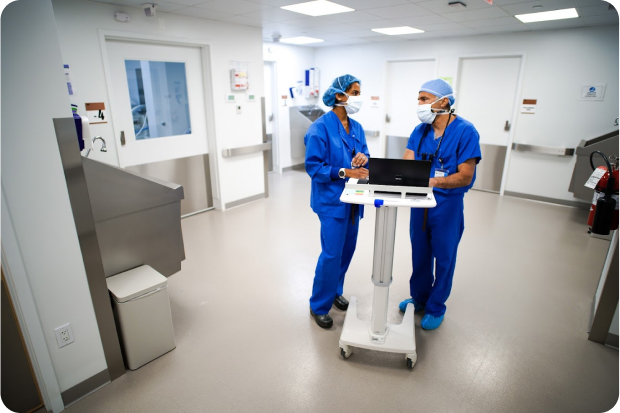 OUR LOCATIONSCall to book (212) 604-1300
OUR LOCATIONSCall to book (212) 604-1300
 OUR LOCATIONSCall to book (212) 604-1300
OUR LOCATIONSCall to book (212) 604-1300

Upper back pain is a common condition that occurs anywhere along the vertebra – starting from the neck’s base down to the bottom of the ribs. But if you’re experiencing this whenever you take deep breaths, it might be a symptom of a more serious health condition that requires the immediate attention of a physician.
So what could be the cause of the upper back pains when breathing? Back pains affect a person’s breathing muscles. They might be a sign of serious health conditions like pleurisy, intercostal muscle strain, spine conditions, panic disorder, arrhythmia, chest infection, lung cancer, obesity, and pulmonary embolism.
According to the American Chiropractic Association (ACA), around 80% of the American population has already experienced back pains at some point in their lives. It’s also the most common reason why people miss workdays. The cause for back pains ranges from something as simple as hunching over computers and phones to more serious conditions, such as ruptured discs, bacterial infection, and cancer.
Most cases of back pain are treated with rest, stretches, and medication. But if it’s accompanied by other symptoms, it’s better to consult a doctor to find out the underlying cause. Upper back pain that occurs when a person takes a deep breath is already a sign to visit a physician. Here are some of the possible causes for the discomfort:
This condition attacks the outside tissue covering the lungs. It’s a type of infection that causes the said tissue to swell, resulting in difficulty breathing and chest discomfort. A patient might also experience shoulder and upper back pain. The pain and discomfort only get worse when the person inhales.
Other symptoms that accompany pleurisy include fast heart rate, cough, tiredness, and fever. This condition might improve once the patient gets enough rest or takes pain relievers. Doctors also prescribe other medications that reduce the swelling of the lung tissues and fight the infection. But in some cases, patients might need to get treated in a hospital for a few days to remove the pleural effusion (excess fluid) around the lungs.
Intercostal muscles are found between two adjacent ribs. They’re important for supporting the rib cage in contracting or expanding during diaphragmatic breathing. If at least one of the intercostal muscles is strained in the back area, a person experiences different symptoms that range from stiffness and mild tenderness to sharp pain. Breathing also becomes difficult and the pain worsens whenever the diaphragm moves and the rib cage contracts and expands.
Here are the two most common causes of intercostal muscle strain:
It usually takes around 6 to 8 weeks for the intercostal muscles to heal. Pain medications, ice packs, and heat packs are enough to get the patient through the initial pain. They’re advised to reduce their activities for a few days to avoid further damage to the strained muscles. If there is severe pain, further medical evaluation might be needed.
Different spine conditions are usually the cause of pain in the upper, mid, and lower back areas. Depending on the location and severity, they might also affect a person’s breathing pattern. Here are some of the most common spine conditions that cause both upper back pain and difficulty breathing:
A person is diagnosed with panic disorder when they experience panic attacks and are anxious about these attacks now and then. The anxiety or sudden fear is usually accompanied by other symptoms including difficulty breathing, chest pain, and muscle spasm. Some patients with panic disorder also experience racing heart rate, shaking, sweating, and dizziness.
Panic disorder is treated with relaxation techniques, medication, and therapy. Proper breathing exercise also helps ease the symptoms when the panic attack is about to happen. Each person is used to different treatments, which is why it’s important to consult with a physician to determine the best remedy.
Back pain accompanied by difficulty breathing is a symptom of a heart attack or arrhythmia, a life-threatening situation that needs immediate assistance from a medical professional. Although it occurs suddenly, there are also cases when a heart attack is slow. It starts when the blood flow to the heart is blocked. Other symptoms of arrhythmia include:
The treatment for arrhythmia varies depending on the severity and type of attack. If an individual starts experiencing the symptoms, call emergency services immediately.
Chest infections cause the lungs to swell. Back pain and difficulty breathing are accompanied by other symptoms, such as body ache, high temperature, fever, and cough. The pain becomes sharper whenever the person breathes. Here are two of the most common chest infections that cause upper back pain when breathing:
Mild chest infections are treated with pain relievers, fluids, and rest. But if the infection is severe, the patient needs to see a doctor immediately.
Lung cancer is a serious health condition that doesn’t present its symptoms early on. Patients experience chest pain that worsens when coughing or breathing. Once the cancer cells spread to other parts of the body, it causes pain in the patient’s hips or back.
Tumors might also develop in the lungs. Once it starts pressing on the spinal nerves, the patient might have back pains whenever they breathe. Other symptoms of this condition include:
Treatments for lung cancer depend on the type, location of the cancer cells, size of the tumor, cancer stage, and patient’s overall health. Some of the options include chemotherapy, surgery, and radiation therapy.
Obesity forces the body to carry excess weight. This puts pressure on an individual’s joints, back, and other body parts that might become painful over time. Some obese people even have difficulty breathing because it delivers a sharp pain in their bodies.
Healthy weight loss with a calorie-restriction diet helps relieve pain in the joints, back, and other parts of the body. If an individual has trouble keeping a healthy weight, it might be a good idea to consult a doctor because certain conditions hinder weight loss, such as hormonal causes.
This condition happens when a blood clot develops in the arteries that deliver blood to the lungs. It affects the normal blood flow, which may be life-threatening. An individual with pulmonary embolism experiences upper back pain whenever they breathe. Other symptoms also include:
Some of the treatments for pulmonary embolism include anticoagulant medication or surgical procedures to remove the clot. It’s a medical emergency that requires the immediate attention of a medical professional.

Most cases of upper back pain subside after some time of at-home treatments, such as over-the-counter medicine or stretching routine. But if it’s accompanied by other symptoms, it’s better to see a doctor to get treated immediately. Visit a physician if you’re experiencing the following upper back pain symptoms:
Accidents and injuries also warrant an immediate trip to a doctor’s office. Even an injury that has fully healed has to be examined if it starts aching again.
After consulting with a physician about the upper back pain when breathing, they might prescribe any of the following solutions:
New York Pain Care is the sports injury center for physical therapy and pain management in New York. Our team of board-certified physical therapists and doctors is always ready to provide one-on-one care for each of our clients.
After a thorough consultation and accurate diagnosis of the condition that causes the upper back and neck pain when breathing, our doctors develop a custom-fit treatment plan to promote recovery and relieve pain as soon as possible.
At New York Pain Care, we understand that our clients have busy schedules, which is why they can simply call us or visit our website to book an appointment between 7:00 AM to 7:00 PM. Experience comprehensive care and treatment for back pain here at New York Pain Care now. Get in touch with us by calling (646) 846-1824
Learn more: What It Means When You Feel Upper Stomach and Back Pain Together






